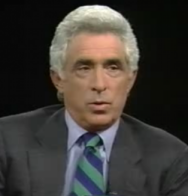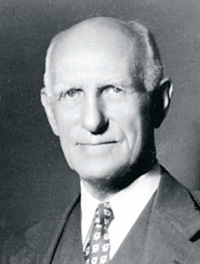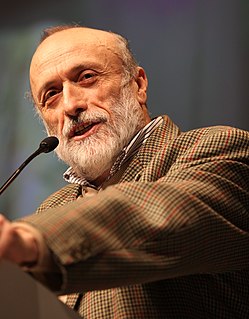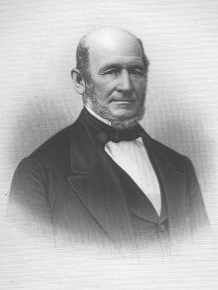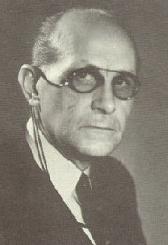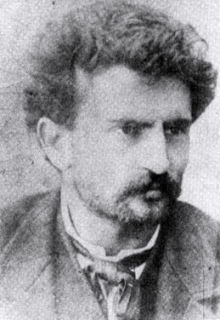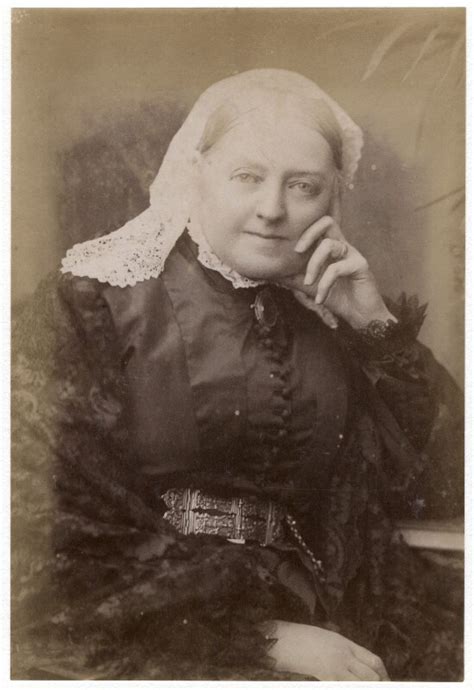Top 547 Obliged Quotes & Sayings - Page 9
Explore popular Obliged quotes.
Last updated on November 18, 2024.
One current of continuity runs underneath all the abortive phases of my life. From childhood on I have been obliged to drop anything I was doing to run after any man who seemed to know a little more than I did about God . . . I most want to write about: how a modern woman has sought the face of God-not the name nor the fame but the face [ital] of God-and what adventures came to meet her on this ancient human path.
Do the structures of language and the structures of reality (by which I mean what actually happens) move along parallel lines? Does reality essentially remain outside language, separate, obdurate, alien, not susceptible to description? Is an accurate and vital correspondence between what is and our perception of it impossible? Or is it that we are obliged to use language only in order to obscure and distort reality -- to distort what happens -- because we fear it?
In all things, therefore, where we have clear evidence from our ideas, and those principles of knowledge I have above mentioned, reason is the proper judge; and revelation, though it may, in consenting with it, confirm its dictates, yet cannot in such cases invalidate its decrees: nor can we be obliged, where we have the clear and evident sentience of reason, to quit it for the contrary opinion, under a pretence that it is matter of faith: which can have no authority against the plain and clear dictates of reason.
What was it that obliged Jerome to write his book, Concerning Illustrious Men? It was the common reproach of old cast upon Christians, 'That they were all poor, weak, unlearned men.' The sort of men sometime called 'Puritans' in the English nation have been reproached with the same character. . . But when truth shall have liberty to speak, it will be known that Christianity never was more expressed unto the life than in the lives of the persons that have been thus reproached.
According to their [Newton and his followers] doctrine, God Almighty wants to wind up his watch from time to time: otherwise it would cease to move. He had not, it seems, sufficient foresight to make it a perpetual motion. Nay, the machine of God's making, so imperfect, according to these gentlemen; that he is obliged to clean it now and then by an extraordinary concourse, and even to mend it, as clockmaker mends his work.
If a sound body and a sound mind, which is as much as to say health and virtue, are to be preferred before all other considerations, ought not men, in choosing a business either for themselves or children, to refuse such as are unwholesome for the body, and such as make a man too dependent, too much obliged to please others, and too much subjected to their humors in order to be recommended and get a livelihood?
We have entered an Orwellian era in which entitlement replaces responsibility, coercion is described as compassion, compulsory redistribution is called sharing, race quotas substitute for diversity, and suicide is prescribed as 'death with dignity.' Political discourse has become completely corrupted. The reason is that if you tell people directly that you want to raise their taxes, transfer their wealth, count them by skin color, or let doctors kill them, most will object. Statists know this and therefore are obliged to obfuscate.
Christianity, just as much as Islam, teaches children that unquestioned faith is a virtue. You don't have to make the case for what you believe. If somebody announces that it is part of his faith, the rest of society, whether of the same faith, or another, or of none, is obliged, by ingrained custom, to "respect" it without question; respect it until the day it manifests itself in a horrible massacre like the destruction of the World Trade Center, or the London or Madrid bombings.
What would become of the world without the Devil? Under all the different systems of religion that have guided or misguided the world for the last six thousand years, the Devil has been the grand scapegoat. He has had to bear the blame of every thing that has gone wrong. All the evil that gets committed is laid to his door, and he has, besides, the credit of hindering all the good that has never got done at all. If mankind were not thus one and all victims to the Devil, what an irredeemable set of scoundrels they would be obliged to confess themselves!
As a young boy, Charles Darwin made friends easily but preferred to spend his time taking long, solitary nature walks. (As an adult he was no different. “My dear Mr. Babbage,” he wrote to the famous mathematician who had invited him to a dinner party, “I am very much obliged to you for sending me cards for your parties, but I am afraid of accepting them, for I should meet some people there, to whom I have sworn by all the saints in Heaven, I never go out.”)
Any single man must judge for himself whether circumstances warrant obedience or resistance to the commands of the civil magistrate; we are all qualified, entitled, and morally obliged to evaluate the conduct of our rulers. This political judgment, moreover, is not simply or primarily a right, but like self-preservation, a duty to God. As such it is a judgment that men cannot part with according to the God of Nature. It is the first and foremost of our inalienable rights without which we can preserve no other.
...the act of eating,which hath by several wise men been considered as extremely mean and derogatory from the philosophic dignity, must be in some measure performed by the greatest prince, hero, or philosopher upon earth; nay, sometimes Nature hath been so frolicsome as to exact of these dignified characters a much more exorbitant share of this office than she hath obliged those of the lowest orders to perform.
Nature is indeed a specious ward, nay, there is a great deal in it if it is properly understood and applied, but I cannot bear to hear people using it to justify what common sense must disavow. Is not Nature modifed by art in many things? Was it not designed to be so? And is it not happy for human society that it is so? Would you like to see your husband let his beard grow, until he would be obliged to put the end of it in his pocket, because this beard is the gift of Nature?
The fact would seem to be, if in my situation one may speak of facts, not only that I shall have to speak of things of which I cannot speak, but also, which is even more interesting, but also that I, which is if possible even more interesting, that I shall have to, I forget, no matter. And at the same time I am obliged to speak. I shall never be silent. Never.
All during the day, in the chinks of time between the things we find ourselves obliged to do, there are the moments when our minds ask: 'What next?' In these chinks of time, ask Him: 'Lord, think Thy thoughts in my mind. What is on Thy mind for me to do now?' When we ask Christ, 'What next?' we tune in and give Him a chance to pour His ideas through our enkindled imagination. If we persist, it becomes a habit.
That all persons living in this province, who confess and acknowledge the one Almighty and eternal God, to be the Creator, Upholder and Ruler of the world; and that hold themselves obliged in conscience to live peaceably and justly in civil society, shall, in no ways, be molested or prejudiced for their religious persuasion, or practice, in manners of faith and worship, nor shall they be compelled, at any time, to frequent or maintain any religious worship, place or ministry whatever.
Most British playwrights of my generation, as well as younger folks, apparently feel somewhat obliged to Russian literature - and not only those writing for theatres. Russian literature is part of the basic background knowledge for any writer. So there is nothing exceptional in the interest I had towards Russian literature and theatre. Frankly, I couldn't image what a culture would be like without sympathy towards Russian literature and Russia, whether we'd be talking about drama or Djagilev.
... we are obliged to produce the truth by the power that demands truth and needs it in order to function: we are constrained, we are condemned to admit the truth or to discover it. Power constantly asks questions and questions us; it constantly investigates and records; it institutionalizes the search for the truth, professionalizes it, and rewards it. ... In a different sense, we are also subject to the truth in the sense that truth lays down the law: it is the discourse of truth that decides, at least in part; it conveys and propels effects of power.
God Bless America started to become an almost ritualistic incantation at the end of political speeches really with Ronald Reagan. It appears occasionally before, but it was not that common. And of course since it was a song that wasn't written by Irving Berlin until the 20th century (laughter), none of the 19th century presidents said God Bless America at the end of speeches, either. I think that the symbolism which suggests that everybody is religious and that even presidents who believe in church and state feel obliged to do this.
Religion is as necessary to reason as reason is to religion. The one cannot exist without the other. A reasoning being would lose his reason, in attempting to account for the great phenomena of nature, had he not a Supreme Being to refer to; and well has it been said, that if there had been no God, mankind would have been obliged to imagine one.
I am obliged to interpolate some remarks on a very difficult subject: proof and its importance in mathematics. All physicists, and a good many quite respectable mathematicians, are contemptuous about proof. I have heard Professor Eddington, for example, maintain that proof, as pure mathematicians understand it, is really quite uninteresting and unimportant, and that no one who is really certain that he has found something good should waste his time looking for proof.
it seems to me that grandmothers have a very special place in the affections of young children. Not obliged, as parents are, to provide food, shelter, protection, advice and discipline, day in and day out, they can afford to be much more easy-going. The unexpected present, the extra outing, the little treat of a favourite meal prepared especially to delight the child and, above all, the time to listen to youthful outpourings, all make a grandmother a loved ally. It is hardly surprising that the bond between grandmother and grandchild is often stronger than that between parent and child.
For years, I'd say yes to almost everything, trying to be nice and generous. Feeling obliged to be of service to the world. Maybe also a fear of being forgotten if I don't. But I paid the ultimate price in doing that, because for all those years, I got almost no work done! Some famous authors have written about this: that if they said yes to every request, then they'd never have time to write another book again.
At that time, he was satisfying a sensual curiosity by experiencing the pleasures of people who live for love. He had believed he could stop there, that he would not be obliged to learn their sorrows; how small a thing her charm was for him now compared with the astounding terror that extended out from it like a murky halo, the immense anguish of not knowing at every moment what she had been doing, of not possessing her everywhere and always!
There aren't many such enthusiasts born. The average person is not especially curious about the world. He is alive, and being somehow obliged to deal with this condition, feels the less effort it requires, the better. Whereas learning about the world is labor, and a great all-consuming one at that. Most people develop quite antithetical talents, in fact - to look without seeing, to listen without hearing, mainly to preserve onself within oneself.
Buonaparte is certainly writing, or rather dictating, his memoirs. He walks backwards and forwards with his hands behind him, and dictates so fast that two or three of his suite are obliged to be in attendance, that the one may take down one-half of a sentence, and another the rest; they then literally compare notes, and put the disjointed legs and wings and heads of periods together. This is writing a book as he fought a battle.
If food was no longer obliged to make intercontinental journeys, but stayed part of a system in which it can be consumed over short distances, we would save a lot of energy and carbon dioxide emissions. And just think of what we would save in ecological terms without long-distance transportation, refrigeration, and packaging--which ends up on the garbage dump anyway--and storage, which steals time, space, and vast portions of nature and beauty.
Considerable obstacles generally present themselves to the beginner, in studying the elements of Solid Geometry, from the practice which has hitherto uniformly prevailed in this country, of never submitting to the eye of the student, the figures on whose properties he is reasoning, but of drawing perspective representations of them upon a plane. ...I hope that I shall never be obliged to have recourse to a perspective drawing of any figure whose parts are not in the same plane.
The time will come when we will be obliged to depend upon our own resources; for the time is not far distant when the curtain will be dropped between us and the United States. When the time comes, brethren and sisters, you will wish you had commenced sooner to make your own clothing. I tell you, God requires us to go into home manufacture; and, prolong it as much as you like, you have got to do it.
We will freedom for freedom’s sake, in and through particular circumstances. And in thus willing freedom, we discover that it depends entirely upon the freedom of others and that the freedom of others depends upon our own. Obviously, freedom as the definition of a man does not depend upon others, but as soon as there is a commitment, I am obliged to will the liberty of others at the same time as my own. I cannot make liberty my aim unless I make that of others equally my aim.
The distribution of tasks among the various employees follows a simple rule, which is that the duty of the members of each category is to do as much work as they possibly can, so that only a small part of that work need be passed to the category above. This means that the clerks are obliged to work without cease from morning to night, whereas the senior clerks do so only now and then, the deputies very rarely, and the Registrar almost never.
Quite a different thing is, if a seeker, dissatisfied by materialism and doctrines, and longing for spiritual support, will ask advice and information of an adept. In such a case the adept is obliged to supply the seeker with spiritual light and insight, according to his mental powers. Then the magician should spare neither time nor pains to communicate his spiritual treasures and lead the seeker to the light.
Others will give away large alms in order to be considered charitable people. Should they not give these out of their own wages, which so often they squander on trifles? If this has happened to you, do not forget that you are obliged to pay back to the person concerned all that you gave to the poor without the knowledge or consent of your employers. Then again, there is the one who has been entrusted by his employer with the supervision of the staff, or of workmen, who gives out wine and all sorts of other things to them if they ask him.
You and I have formerly seen warm debates and high political passions. But gentlemen of different politics would then speak to each other and separate the business of the Senate from that of society. It is not so now. Men who have been intimate all their lives, cross the streets to avoid meeting, and turn their heads another way, lest they should be obliged to touch their hats. This may do for young men with whom passion is enjoyment. But it is afflicting to peaceable minds. Tranquility is the old man's milk.
If the government were obliged to come to the people for money instead of vice-versa, the people would keep government under control and operate their economy satisfactorily with prosperity and peace resulting. The peoples of the nations do not make war. For them peace is the natural and permanent order. Wars are planned and perpetrated by politicians and their diplomats; and the money power of government is the means by which the people are maneuvered into wars.
Jung first gave us the term ‘shadow’ to refer to those parts of our personality that have been rejected out of fear, ignorance, shame, or lack of love. His basic notion of the shadow was simple: ‘the shadow is the person you would rather not be.’ He believed that integrating the shadow would have a profound impact, enabling us to rediscover a deeper source of our own spiritual life. ‘To do this,’ Jung said, ‘we are obliged to struggle with evil, confront the shadow, to integrate the devil. There is no other choice.’
The question may seem embarrassing, but it can be answered in a few words. For two people to live in peace they must both want peace; if one of them insists on using force to oblige the other to work for him and serve him, then the other, if he wishes to retain his dignity as a man and not be reduced to abject slavery, will be obliged in spite of his love of peace, to resist force with adequate means.
Most of life is so dull that there is nothing to be said about it, and the books and talks that would describe it as interesting are obliged to exaggerate, in the hope of justifying their own existence. Inside its cocoon of work or social obligation, the human spirit slumbers for the most part, registering the distinction between pleasure and pain, but not nearly as alert as we pretend. There are periods in the most thrilling day during which nothing happens, and though we continue to exclaim, "I do enjoy myself", or , "I am horrified," we are insincere.
What after all, has maintained the human race on this old globe despite all the calamities of nature and all the tragic failings of mankind, if not faith in new possibilities, and courage to advocate them. Doubtless many times these new possibilities were declared by a man who, quite unconscious of courage, bore the "sense of being an exile, a condemned criminal, a fugitive from mankind." Did every one so feel who, in order to travel on his own proper path had been obliged to leave the traditional highway?
Nothing detains the reader's attention more powerfully than deep involutions of distress, or sudden vicissitudes of fortune; and these might be abundantly afforded by memoirs of the sons of literature. They are entangled by contracts which they know not how to fulfill, and obliged to write on subjects which they do not understand. Every publication is a new period of time, from which some increase or declension of fame is to be reckoned. The gradations of a hero's life are from battle to battle, and of an author's from book to book.
Do what he will, he [the profane man] is an inheritor. He cannot utterly abolish his past, since he himself is a product of his past. He forms himself by a series of denials and refusals, but he continues to be haunted by the realities that he has refused and denied. To acquire a world of his own, he has desacralized the world in which his ancestors lived; but to do so he has been obliged to adopt an earlier type of behavior, and that behavior is still emotionally present in him, in one form or another, ready to be reactualized in his deepest being.
The tyrant, who in order to hold his power, suppresses every superiority, does away with good men, forbids education and light, controls every movement of the citizens and, keeping them under a perpetual servitude, wants them to grow accustomed to baseness and cowardice, has his spies everywhere to listen to what is said in the meetings, and spreads dissension and calumny among the citizens and impoverishes them, is obliged to make war in order to keep his subjects occupied and impose on them permanent need of a chief.
I have thoroughly tried school-keeping, and found that my expenses were in proportion, or rather out of proportion, to my income,for I was obliged to dress and train, not to say think and believe, accordingly, and I lost my time into the bargain. As I did not teach for the good of my fellow-men, but simply for a livelihood, this was a failure. I have tried trade; but I found that it would take ten years to get under way in that, and that then I should probably be on my way to the devil. I was actually afraid that I might by that time be doing what is called a good business.
And here one must not that hatred is acquired just as much by means of good actions as by bad ones; and so, as I said above, if a prince wishes to maintain the state, he is often obliged not to be good; because whenever that group which you believe you need to support you is corrupted, whether it be the common people, the soldiers, or the nobles, it is to your advantage to follow their inclinations in order to satisfy them; and then good actions are your enemy.
To have loved and lost, either by that total disenchantment which leaves compassion as the sole substitute for love which can exist no more, or by the slow torment which is obliged to let go day by day all that constitutes the diviner part of love - namely, reverence, belief, and trust, yet clings desperately to the only thing left it, a long-suffering apologetic tenderness - this lot is probably the hardest any woman can have to bear.
I will gladly give lessons as a favor, particularly when I see that my student has talent, inclination, and anxiety to learn; but to be obliged to go to a house at a certain hour, or to have to wait at home for a pupil, is what I cannot do, no matter how much money it may bring me in. . . I am a composer and was born to be a Kapellmeister. I neither can nor ought to bury the talent for composition with which God in his goodness has so richly endowed me. . .
A sermon is a valuable thing now and so impressive when you do hear a good one - and there is a lot of failure in the attempt; it's a difficult form - is because it's so seldom true now that you hear people speak under circumstances where they assume they are obliged to speak seriously and in good faith, and the people who hear them are assumed to be listening seriously and in good faith.
In wanting freedom we discover that it depends entirely on the freedom of others, and that the freedom of others depends on ours. . . I am obliged to want others to have freedom at the same time that I want my own freedom. I can take freedom as my goal only if I take that of others as a goal as well.
To put it another way, every love relationship is based upon unwritten conventions rashly agreed upon by the lovers during the first weeks of their love. On the one hand, they are living a sort of dream; on the other, without realizing it, they are drawing up the fine print of their contracts like the most hard-nosed of lawyers. O lovers! Be wary during those perilous first days! If you serve the other party breakfast in bed, you will be obliged to continue same in perpetuity or face charges of animosity and treason!
It is when physicians are bogged down by their incomplete technologies, by the innumerable things they are obliged to do in medicine when they lack a clear understanding of disease mechanisms, that the deficiencies of the health-care system are most conspicuous. If I were a policy-maker, interested in saving money for health care over the long haul, I would regard it as an act of high prudence to give high priority to a lot more basic research in biologic science.
For books [Charles Darwin] had no respect, but merely considered them as tools to be worked with. ... he would cut a heavy book in half, to make it more convenient to hold. He used to boast that he had made Lyell publish the second edition of one of his books in two volumes, instead of in one, by telling him how ho had been obliged to cut it in half. ... his library was not ornamental, but was striking from being so evidently a working collection of books.
I do not think I exaggerate when I say that some of us put our offering in the plate with a kind of triumphant bounce as much as to say: "There - now God will feel better!" I am obliged to tell you that God does not need anything you have. He does not need a dime of your money. It is your own spiritual welfare at stake in such matters as these. You have the right to keep what you have all to yourself - but it will rust and decay, and ultimately ruin you.
We like the ambiance and atmosphere, and we felt really early that... I mean, of course, Air is an electronic band, but we are doing so many real recordings and the studio is so important for the sound. The acoustics create atmosphere and emotion. Also we want to be independent, we don't want to be obliged to go into a commercial studio and only stay one week because it's really expensive. We want to be able to give a chance to a song, and to spend a lot of time in the studio.
How can I be expected to believe that this same racial discrimination which has been the cause of so much injustice and suffering right through the years, should now operate here to give me a fair and open trial?....consider myself neither morally nor legally obliged to obey laws made by a Parliament in which I am not represented. That the will of the people is the basis of the authority of government, is a principle universally acknowledged as sacred throughout the civilized world.
One might compare the relation of the ego to the id with that between a rider and his horse. The horse provides the locomotor energy, and the rider has the prerogative of determining the goal and of guiding the movements of his powerful mount towards it. But all too often in the relations between the ego and the id we find a picture of the less ideal situation in which the rider is obliged to guide his horse in the direction in which it itself wants to go.
I often used to think myself in the case of the fox-hunter, who, when he had toiled and sweated all day in the chase as if some unheard-of blessing was to crown his success, finds at last all he has got by his labor is a stinking nauseous animal. But my condition was yet worse than his; for he leaves the loathsome wretch to be torn by his hounds, whilst I was obliged to fondle mine, and meanly pretend him to be the object of my love.
Revelation is necessarily limited to the first communication- after that it is only an account of something which that person says was a revelation made to him; and though he may find himself obliged to believe it, it can not be incumbent on me to believe it in the same manner; for it was not a revelation made to ME, and I have only his word for it that it was made to him.
Sir, Your letter of the 15th is received, but Age has long since obliged me to withhold my mind from Speculations of the difficulty of those of your letter, that their are means of artificial buoyancy by which man may be supported in the Air, the Balloon has proved, and that means of directing it may be discovered is against no law of Nature and is therefore possible as in the case of Birds, but to do this by mechanical means alone in a medium so rare and unassisting as air must have the aid of some principal not yet generally known.
For a man who finds life tolerable only by staying on the surface of himself, it is natural to be satisfied with offering no more than his surface to others. There are few demands to be met, and no commitment is required. Marriage, on the other hand, closes the door. Your existence is confined to a narrow space in which you are constantly forced to reveal yourself – and therefore, constantly obliged to look into yourself, to examine your own depths.
A new world is not made simply by trying to forget the old. A new world is made with a new spirit, with new values. Our world may have begun that way, but today it is caricature. Our world is a world of things. What we dread most, in the face of the impending debacle, is that we shall be obliged to give up our gewgaws, our gadgets, all the little comforts that have made us so uncomfortable. We are not peaceful souls; we are smug, timid, queasy and quaky.






